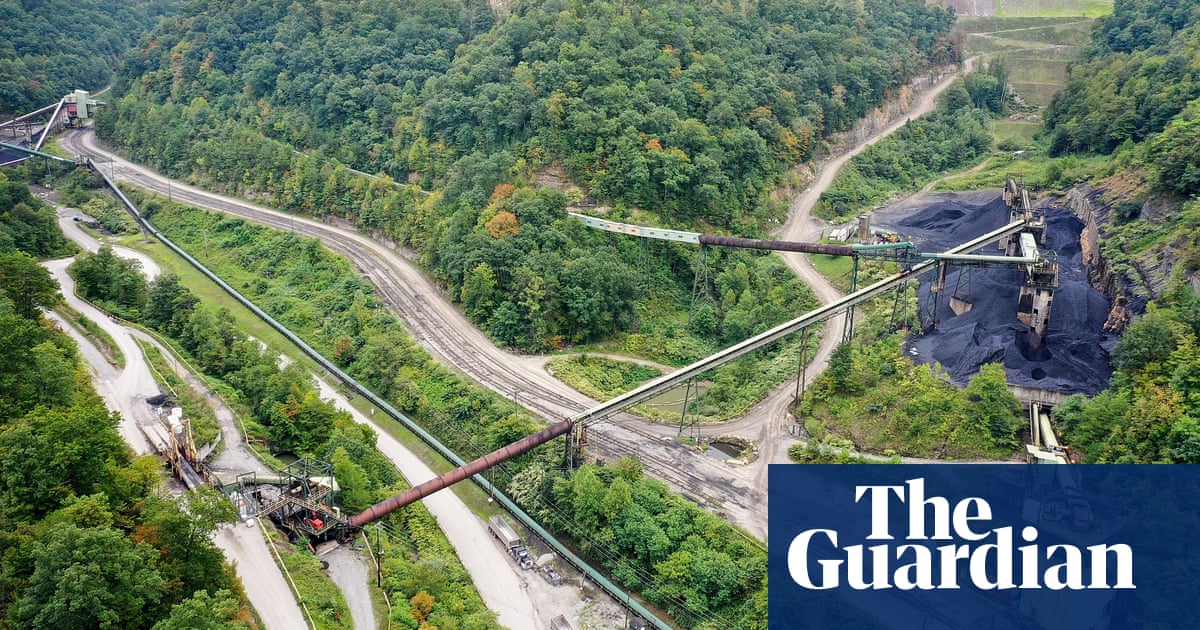Jobs
‘Coal jobs were out, opiates were in’: how shame and pride explain Trump’s rural popularity

Arlie Russell Hochschild has spent decades studying the relationships between work, identity and emotion. The sociologist has a knack for coining terms that gain social currency – including “emotional labor”, in 1983, to describe the need for certain professionals, like flight attendants and bill collectors, to manage their emotions, and “the second shift”, in 1989, to describe women’s household labor.
Her new book, Stolen Pride: Loss, Shame, and the Rise of the Right, explores what Hochschild calls the “pride paradox”: because conservative Americans value personal responsibility, they feel proud when they do well, and blame themselves when they don’t. Yet, her thinking continues, conservative regions often have worse economies and fewer opportunities than so-called blue states, so people feel ashamed of circumstances that aren’t really their fault.
Stolen Pride hits shelves just weeks before a monumental presidential election that will hinge in part on competing visions of identity. The book is an attempt to understand how that pride paradox finds political expression, drawing on several years of field research in mountainous eastern Kentucky, a Donald Trump stronghold.
Hochschild believes progressives need to learn to better hear “the powerful messages that are being communicated from a charismatic leader to a followership, and potentially intercept and understand them and speak to an alienated sector of the population”, she tells me on a recent evening, speaking by Zoom from a book-filled office in Berkeley, and peering at the screen through thin, red-framed eyeglasses.
In recent years, Hochschild’s work has investigated how cultural identity influences politics. Her 2016 book Strangers in Their Own Land: Anger and Mourning on the American Right studied conservative Tea Party supporters in Lake Charles, Louisiana, a region where the petrochemical industry is linked to serious environmental and health problems. Hochschild was interested in why the people she met were hostile to government regulation even when they might personally benefit from state intervention. The book, embraced by progressives anxious to understand Donald Trump’s appeal, became a bestseller.
Hochschild began researching Stolen Pride in 2017. The book applies a similar ethnographic method to an equally conservative, but in other ways very different, region: Appalachia. It focuses on Kentucky’s fifth congressional district, which is the United States’ whitest and second poorest voting district, with high unemployment, poor health metrics and many people, especially men, who are subject to the so-called diseases of despair – drug addiction, alcoholism, suicide. While Hochschild’s interest in the American white working class is hardly new, her book offers some interesting new theories and angles of understanding.
One of the book’s central events is a march that white supremacists held in Pikeville, Kentucky, in April 2017 – a test run for their more famous and deadly march in Charlottesville, Virginia, a few months later. These neo-Nazis, Klansmen and other extremists saw Pikeville as an ideal place to preach; in addition to being overwhelmingly white, eastern Kentucky had suffered a “perfect storm”, Hochschild says: “Coal jobs were out, opiates were in. It was a distressed area, and the white supremacists were coming to speak to that distress, to say, Hey, we’ve got answers for you,” in the form of violent fascism and white separatism.
Hochschild discovered that Pikeville rejected the white supremacists’ pitch. “And I compared it to another kind of appeal, which was that of Donald Trump. One appeal didn’t work, and one did.” Her book, based on interviews with a number of local residents as well as white supremacists, wrestles with the complicated question of why.
Hochschild argues that a “pride economy” coexists with the material economy and is almost as important. It also helps to explain Trump’s popularity in many rural and blue-collar areas.
For more than a century, eastern Kentucky was one of the centers of the American coal industry. Though back-breaking and sometimes deadly for its workers, the sector employed thousands of people, lifted many out of poverty, and brought railways and other infrastructure into the region. Men took pride in their work, which required courage and knowhow, and the people of the region were proud that their coal fueled America.
“[People could] proudly say, ‘We kept the lights on in this country; we won world war one, world war two by digging coal,’ and the coalminer was kind of like a decorated soldier – he faced danger. Many died young, of black lung. But it was like a trade passed down from generation to generation for men, and then suddenly it was cut off.”
Many Appalachians blame Barack Obama’s environmental regulations for the loss of coal jobs, though that decline was decades in the making and had more to do with the rise of natural gas and automation that made the coal industry less reliant on human labor. The job losses contributed to people leaving, exacerbating a depopulation already endemic in rural America. Men who remained were humiliated, Hochschild notes, and forced to accept “‘girly jobs’ – waiting tables or scooping ice-cream, jobs that young teenagers took that couldn’t support a family”.
Add to this OxyContin, which Purdue falsely marketed as a non-addictive painkiller for people recovering from work injuries. Some liberal states required three copies of every prescription, with one going to a government-controlled substances monitor; in conservative, regulation-averse states such as Kentucky, which required only two, OxyContin distribution was 50% higher.
“So many people succumbed to drug addiction,” Hochschild says, “and that became [another] kind of shame, because once you did that, you lost your family, custody of your kids, you might be stealing from Grandma’s purse, or you’re on the dole, and great shame in this area was attached to accepting government services, although many people did.”
Like many blue-collar, formerly Democratic areas of the US, eastern Kentucky has a history of leftwing populism. Pikeville is only 35 miles from Matewan, West Virginia, where striking miners memorably battled union-busting private detectives in 1920. The phrase “redneck” – today a term of derision, including in Kentucky, where some of Hochschild’s subjects stressed that they were “hillbillies” but not rednecks – was once a badge of honor that distinguished union miners, who wore red scarves, from scabs.
The white supremacists’ belief that Pikeville would be sympathetic ground turned out to be wrong. “I spotted only three locals who marched with the white nationalists,” someone tells Hochschild in her book, “and one of them is mentally challenged.” Residents, conscious of stereotypes about Appalachia, resented the marchers’ assumption that just because their area was rural and economically deprived it would also be bigoted. The local government went to lengths to prevent violence and protect a local mosque, and residents treated the march with indifference or hostility.
In contrast, Trump is more popular than ever in eastern Kentucky, which Hochschild thinks is because voters regard him as a “good bully” willing to be obnoxious on behalf of white working-class people, even if that means flouting norms of political correctness and civility.
Trump shrewdly understands the power of shame and pride, Hochschild argues, and his antagonism of the liberal establishment follows a predictable pattern: Trump makes a provocative public pronouncement; the media shames Trump for what he said; Trump frames himself as a victim of censorious bullies; then he “roars back”, shifting blame back on to his persecutors and away from himself and, by extension, his supporters. Struggling Appalachians, who feel that big-city Americans look down on them, identify with Trump’s pugnacity.
Shame is “almost like coal”, Hochschild says – “a resource to exploit by a charismatic leader”.
Places like eastern Kentucky used to have strong labor unions that protected workers and connected blue-collar Americans to the Democratic party. The decline of unions, which now represent fewer than 7% of American private-sector workers, has been accompanied by the kind of alienation to which a strongman figure like Trump is adept at speaking.
“If we look at whites without [bachelor’s degrees] who fit this pattern of loss and decline, they’re all turning Republican,” Hochschild says. “And we’re not speaking to them.” (By “we”, she seems to be referring to progressives, coastal elites, the establishment.) Despite what she calls a mutual loss of political empathy, Hochschild still believes there is “an opportunity for us to become bicultural” – and that, with an acrimonious and consequential election looming, doing so is more important than ever.








